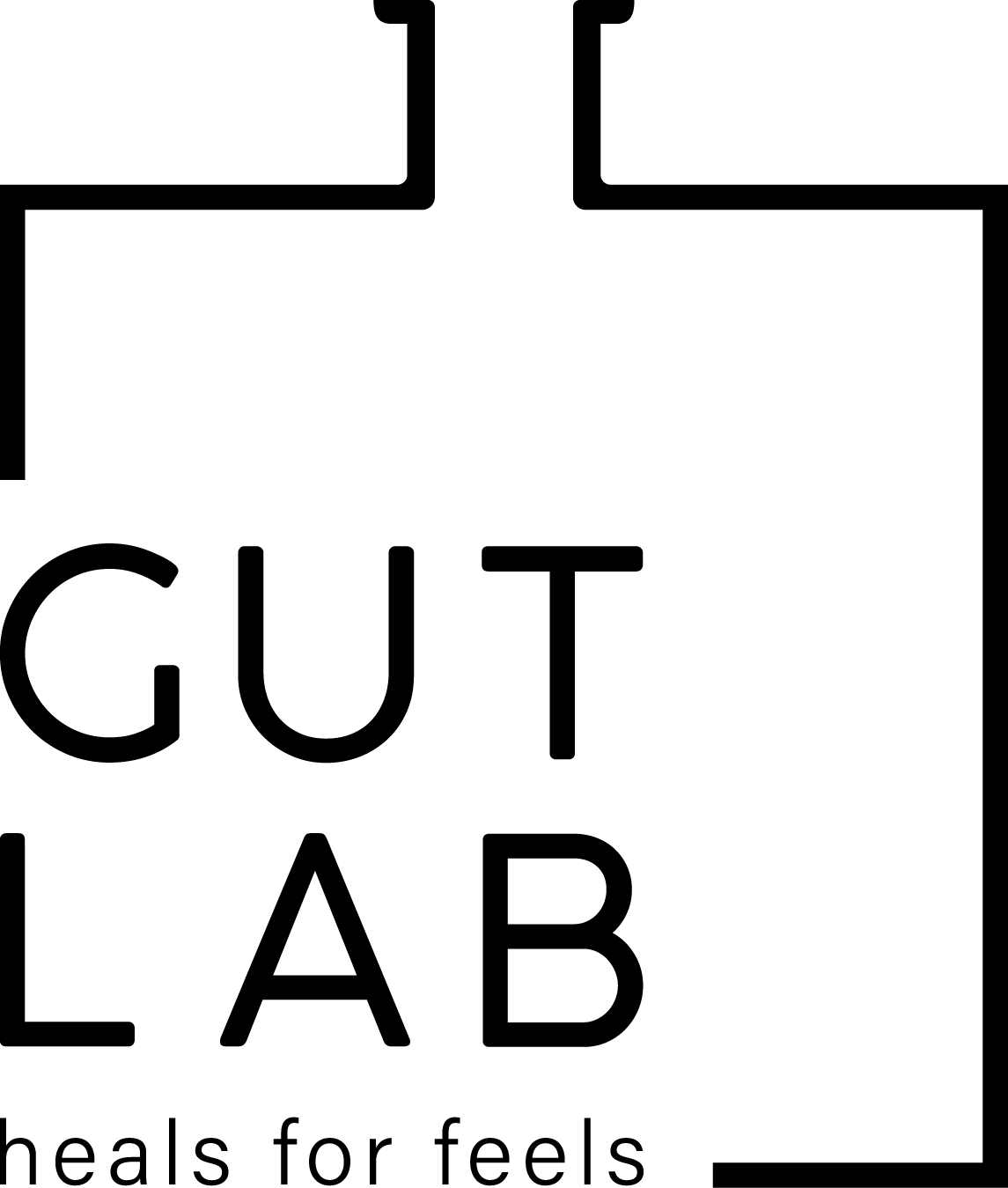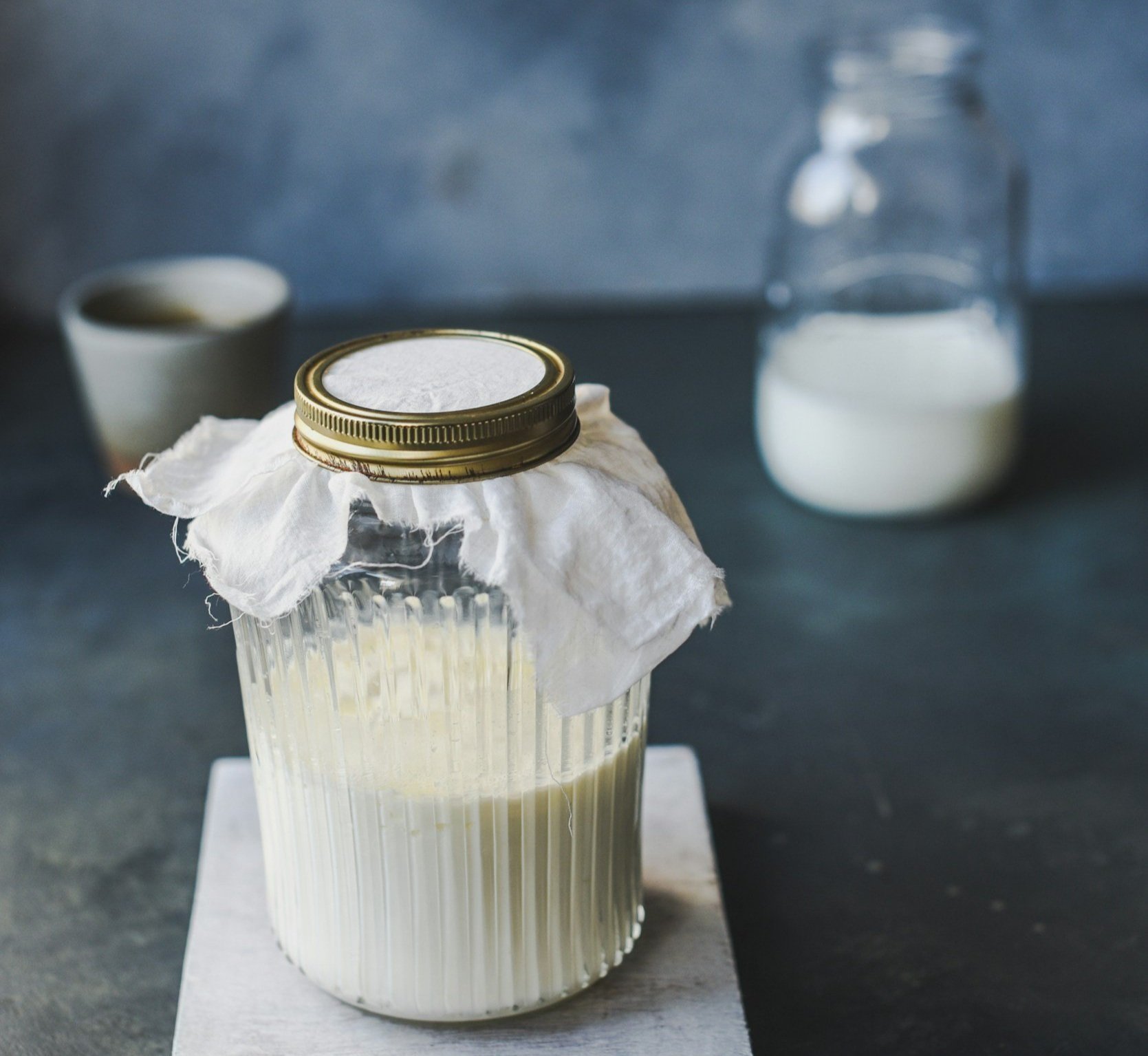Why probiotic foods are far superior to probiotic supplements.
Kefir, fermenting in a glass jar with cheesecloth.
Probiotic foods are cheap, time-tested and essential to good health. They support gut health, energy production, liver detoxification and immune system regulation.
I recommend probiotic supplements to gut dysbiosis clients that react badly to probiotic foods, but I do this as an interim protocol as we heal the gut and restore their microbiome, working to reduce such intolerances and reactions. A healthy microbiome will not react badly to nourishing probiotic foods, but in fact thrive on them.
Here’s my top 10 reasons why probiotic foods are FARRR better than probiotic supplements.
1. Greater probiotic diversity
Probiotic foods like sauerkraut, kimchi, kefir, and yogurt contain a huge variety of beneficial bacteria strains, whereas most probiotic supplements offer far less variety and quantity. For example, 30 grams of sauerkraut has more probiotics than 50 capsules, and contains about 2 trillion different kinds of bacteria, whereas probiotic supplements might contain around 10 billion.
2. Better gut colonization
The live bacteria in naturally fermented foods are more resilient and have a better chance of surviving stomach acid and bile to colonize the gut. There is not great evidence that probiotic supplements are good at colonizing the gut, meaning they might be helpful when you take them but the benefits are temporary.
3. Probiotics + prebiotics provided together
Fermented foods contain fibre and enzymes that nourish the beneficial bacteria, while supplements often lack the necessary prebiotics (that support beneficial bacteria growth and colonization).
4. More nutrients and enzymes, with greater bioavailability
Fermentation enhances the bioavailability of key vitamins like B12, K2, and folate, plus enzymes that aid digestion—something most probiotic supplements don’t offer as they are lab made and isolated strains. Plus, fermented vegetables like sauerkraut and kimchi are the only plant based source of the neuro-essential nutrient vitamin B12.
5. No capsule, additives or artificial ingredients
Many probiotic supplements contain binders, fillers, and additives, while organic fermented foods are just real food without any chemicals or harmful ingredients. Plus you don’t have to eat a capsule.
Delicious sauerkraut.
6. Greater absorption and efficacy
The body recognises and accepts real natural foods. Synthetic foods or supplements are foreign and aren’t always assimilated by the body. Probiotic bacteria from food are more naturally recognized by the body, making them more effective than lab-isolated strains in capsules.
7. Detoxification and digestion support
Fermented foods help balance stomach acid, improve liver detox pathways, and promote better digestion, reducing bloating and constipation.
8. Huge dollar savings
A jar of sauerkraut or a batch of homemade kefir can provide weeks of probiotics for a fraction of the cost of daily supplements. The only ingredients necessary are organic cabbage and quality salt.
9. Immune strengthening
Probiotic foods contain additional immune-boosting compounds like short-chain fatty acids (SCFAs) and postbiotics, which help regulate inflammation and enhance immune strength.
10. Traditional, time-tested and sustainable
Humans have been consuming fermented foods for thousands of years, while probiotic supplements are a modern invention with limited long-term studies.
Best Probiotic Foods:
1. Sauerkraut (or Kimchi) – gut & liver support
High in lactic acid bacteria to restore gut balance
Boosts vitamin C (important for energy and immune support)
Supports liver detox by aiding bile flow
If histamines are an issue, try low-histamine ferments like carrot or beet kraut
How to use: Start with 1 teaspoon daily, increasing to 1-2 tablespoons per meal.
2. Dairy Kefir – ultimate probiotic & energy booster
Contains 30+ strains of probiotics, including beneficial yeasts
High in B vitamins (especially B12) for energy
Helps restore the gut-liver connection
If you’re lactose-sensitive, opt for coconut milk or water kefir
How to use: Start with ¼ cup daily, increasing as tolerated.
3. Coconut yoghurt – gut healing & anti-inflammatory
Good alternative if dairy is an issue
Contains medium-chain triglycerides (MCTs) for brain & energy support
Naturally cooling & soothing for the gut
How to use: Eat 1-2 tablespoons per day or mix with berries and honey.
4. Beet kvass – blood & liver cleanser
Supports liver detox and bile flow
Rich in natural nitric oxide, improving circulation and oxygenation (great for fatigue or boosting athletic performance)
Loaded with enzymes to enhance digestion
How to use: Start with 1-2 tablespoons per day, increasing to ½ cup if tolerated.
Beet kvass
5. Miso – hormone & gut balancer
Fermented with beneficial fungi and bacteria
Supports thyroid health (contains iodine & beneficial peptides)
High in glutamine, which heals the gut lining
How to use: Add 1 teaspoon to warm (not boiling) water to make miso soup or use as a seasoning.
Extra tips:
Rotate probiotic foods to get a variety of beneficial strains.
Go slow—start with small amounts to avoid bloating or histamine reactions.
Pair with prebiotic foods (garlic, onions, bananas, asparagus) to feed good bacteria.
Support detox pathways by drinking plenty of water and eating enough fibre.
If you are struggling with gut health, reacting to probiotic foods, or just know that you need some help achieving better digestion and bowel health, book in with Sarah and get your gut healing journey started now.




